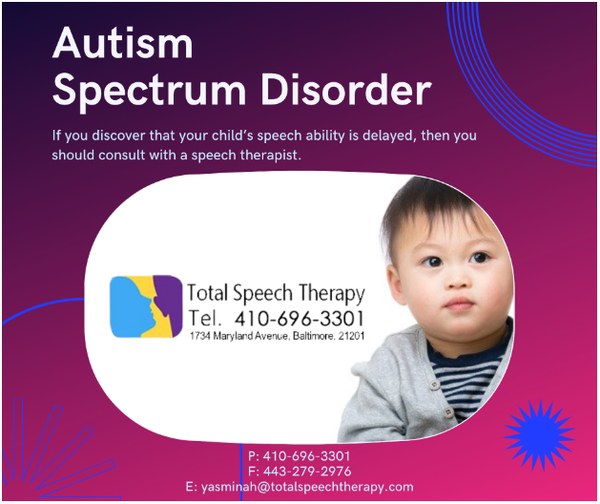Communication is the cornerstone of human connection, allowing us to express our thoughts, feelings, and needs. However, for individuals on the autism spectrum, communication can be a complex challenge. In Baltimore, a city known for its rich history and diverse communities, there is a growing emphasis on bridging communication gaps for individuals with autism. This blog explores the innovative autism therapy approaches in Baltimore that aim to empower individuals on the spectrum and foster meaningful connections.
Understanding Autism Spectrum Disorder:
Autism Spectrum Disorder (ASD) is a neurodevelopmental condition that affects social interaction, communication, and behavior. Each individual with autism is unique, and the spectrum encompasses a wide range of abilities and challenges. For many individuals with autism, challenges in communication can be a significant barrier to building relationships and navigating daily life.
The Importance of Early Intervention:
Early intervention plays a crucial role in supporting individuals with autism in developing effective communication skills. Baltimore has seen a surge in programs and therapies designed to identify and address communication challenges in children and adults on the spectrum. The goal is to provide timely and tailored interventions that can positively impact a person’s ability to communicate and connect with others.
Applied Behavior Analysis (ABA) Therapy:
One of the prominent therapies used in Baltimore for autism is Applied Behavior Analysis (ABA). ABA is a scientifically validated approach that focuses on understanding and modifying behavior. In the context of autism therapy, ABA is often used to enhance communication skills by breaking down complex behaviors into smaller, manageable components.
Therapists using ABA in Baltimore work closely with individuals on the spectrum, employing techniques such as positive reinforcement to encourage desired communication behaviors. This approach not only aids in language development but also helps individuals learn social cues and appropriate ways to express themselves.
Speech and Language Therapy:
Speech and language therapy are integral components of autism therapy in Baltimore. Speech therapists work with individuals to address challenges related to articulation, language comprehension, and social communication. These therapists often collaborate with other professionals, such as ABA therapists and educators, to create a comprehensive and individualized treatment plan.
Social Skills Training:
For many individuals with autism, navigating social situations can be challenging. Baltimore’s autism therapy programs often include social skills training to help individuals develop the necessary tools for successful social interactions. These programs focus on teaching skills such as making eye contact, taking turns in conversation, and understanding non-verbal cues.
Augmentative and Alternative Communication (AAC):
Some individuals with autism may face significant challenges in developing verbal communication skills. In such cases, augmentative and alternative communication (AAC) methods become invaluable. AAC includes tools and strategies such as picture communication boards, sign language, and communication devices.
In Baltimore, therapists work closely with individuals and their families to identify the most effective AAC methods based on the individual’s needs and preferences. These tools not only facilitate communication but also empower individuals to express themselves in various settings.
Community Integration Programs:
Beyond formal therapy settings, community integration programs in Baltimore are making strides in supporting individuals with autism. These programs aim to create inclusive environments where individuals on the spectrum can practice and generalize their communication skills in real-life situations. From community outings to structured social activities, these programs provide opportunities for individuals to engage with others and build meaningful connections.
Conclusion:
Total Speech Therapy stands as a beacon of hope for individuals on the autism spectrum, demonstrating a commitment to innovative approaches in autism therapy with a particular emphasis on bridging communication gaps. Through evidence-based therapies, early intervention, and community support, the city is providing individuals with autism with the essential tools for effective communication and social engagement. As the community continues to prioritize inclusivity and understanding, it serves as an inspiring example for other cities seeking to implement similar programs. For those seeking specialized assistance, the collaboration with professionals such as speech pathologists, including pediatric speech therapists specializing in children’s speech therapy, highlights the broader network of support available to individuals on their journey to improved communication and social connection. Baltimore’s dedication to comprehensive autism therapy showcases the city’s commitment to creating an environment where everyone, regardless of their communication abilities, has the opportunity to connect, thrive, and build a brighter future.







Leave a Reply